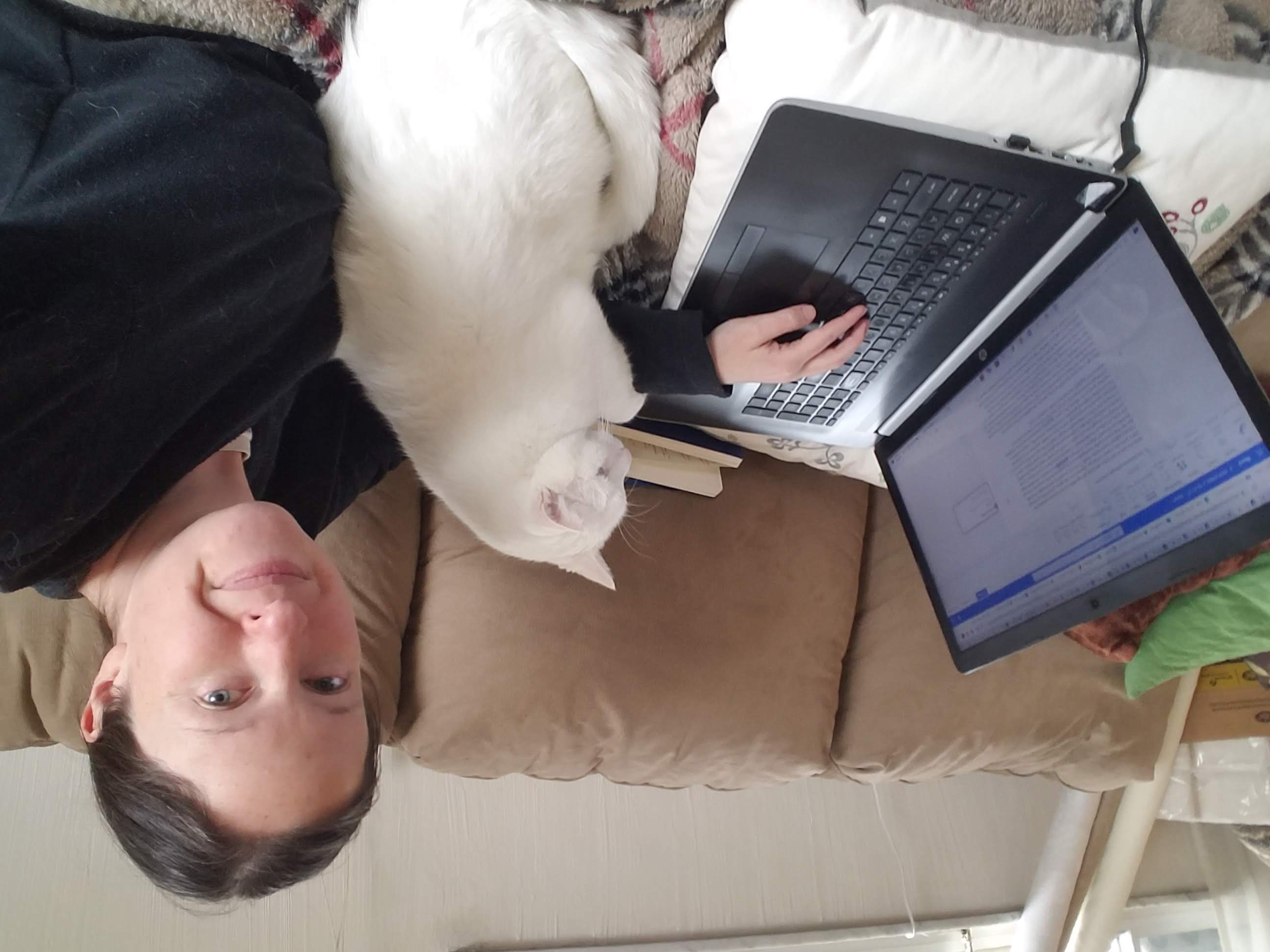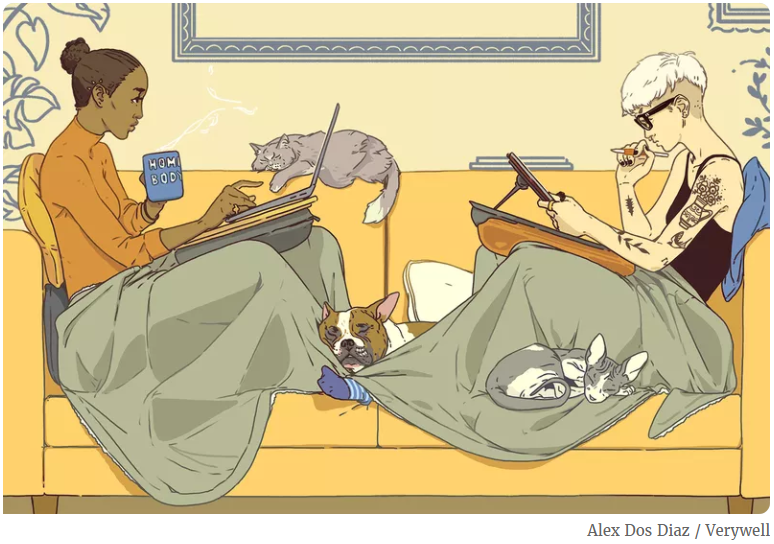Part 1 – Papal Shade?
Early this year the Pope made headlines because of a comment about couples who choose to have pets instead of kids. While news sources on the left and right broadcasted a paraphrased statement and social media feeds became a torrent of pile-ons and slap-backs, my first thought was that something was probably taken out of context, lost in translation, or both. I didn’t have enough time to dig into the subject when it was under discussion, so here we are, almost two months later with a not-so-hot take (which I am writing with a cat planted on my lap).
I will say now that I am not, nor have I ever been, Catholic, so I really have no skin in this game. That being said, I know enough about Catholicism that I’ve been able to pass if and when I find myself at mass: I’ve dated a lot of Catholics, my husband’s whole family is Catholic, and some of my best friends are very active in the church, with graduate work in theology on top of that (many thanks to them for fact-checking this post). And while I have a range of thoughts about the purpose, benefits, and drawbacks of organized religion (Catholicism specifically) that usually lead me to take such pronouncements with a grain of salt, it was interesting to see resulting conversations play out among my friends who felt genuinely attacked by the Holy Father.
To the Source
I have generally been a very big fan of Pope Francis since he became the Bishop of Rome in 2013. This liberal (by comparison) upstart was a former bar bouncer, janitor, and chemistry lab technician before being called to the priesthood. His life in Buenos Aires seems to have helped him stay grounded and more aware of real world problems than some of his predecessors. His background as a Jesuit (he is the first Jesuit pope)[1] and his diploma in chemistry are apparent in some of the more secular issues he weighs in on, most notably on climate science and COVID-19 response.[2]

Francis, who took his name to honor St. Francis of Assisi, is the first pope hailing from outside Europe since the 8th century. He first won my admiration when I found out that he had a tendency to disguise himself and sneak out at night to minister to the homeless.[4] I was further impressed by his (again, by comparison) progressive stances on expanding the role of women in the church and calling for parents of gay children to support, rather than condemn, their children. In 2015 he drew the ire of right-wing pundits who said he, as a religious leader, shouldn’t be weighing in on the issue of climate change. His encyclical, subtitled “on care for our common home,” discussed the scientific consensus about mankind’s role in climate change as well as our collective responsibility to care for God’s creation.[5] (I’m going to go out on a limb here – as I did at the time – and say that he probably has more of a science education than the average cable news host.)
There are obviously going to be places where I disagree with him – and the church in general – but Francis and I don’t have to agree. I can, however, do my best to understand his perspective and appreciate his slow but steady progress in nudging the absolute megalith that is The Church toward something that is more open, accepting, and modern. And that is why, when I heard the absolute outrage over his supposed pronouncement that couples who were childless by choice were somehow terrible people, my first thought was to take a breath and ask what he actually said.
Understanding the Context
To close out the Twelve Days of Christmas, the pope’s comments on the day in question focused on adoption, specifically on Joseph, who was Jesus’ foster father. He went into biblical references from the Old Testament, explaining that having children (either your own or adopting them) was a way of preserving one’s name (a.k.a. bloodline) and keeping one’s estate intact. He talked about how naming something signifies ownership of / responsibility for that thing (in this context, naming a child), and that accepting responsibility for the life of another is a form of parenthood. Using Joseph as an example, he said that being an adoptive parent is one of the highest forms of parenthood.[6]

The line that made the news wasn’t even in the official summary of the pope’s message because it was an off-hand comment, not the focus of the day’s lesson, and it didn’t come out quite how the news sources portrayed it. He did say that some people close themselves off to the experience of parenthood because they don’t want to have children – and they have pets instead that take the place of children; he did say that people who do not take on the role of parenthood in one form or another are missing out on part of the human experience; and he did say that there are many children who need loving families, as well as people who will need children to take care of them when they get older.
To give even more context to the comments in question, part of Catholic wedding vows involve accepting children from God. It is a little more nuanced than just flat acceptance, however: couples are supposed to prayerfully discern when it is responsible to have (or not have) children based on their current circumstances. But, given that piece of information, turning down the opportunity to be a parent is a rejection of your wedding vows (if you were married in the Catholic church), not to mention a rejection of a gift from God.
One point brought up frequently in the social media backlash as proof of the Pope’s hypocrisy was that he does not have any children of his own. Again, looking at his full comments, we see that the one exception he mentions to this exhortation that people should be open to the possibility of having or adopting children was that of people who have devoted their lives to the church by becoming members of the clergy and other religious orders. In this situation, their lifetime commitment to the church is a marriage of sorts, and the service they do by ministering to their communities is a type of parenthood – selfless caring for others.

Birth Trends
Now, there are plenty of reasons people decide not to have children. I have family, friends, and coworkers who have already made that decision, some who are wrestling with the choice, and others who haven’t begun to think about it. And for the record, it is impolite to ask why someone doesn’t have kids yet. For years I couldn’t believe people actually did that in real life… and then I got married and experienced it for myself.
American women are tending to get married and start having kids later in life,[8] which, just from the standpoint of biology, reduces the number of possible births. We also know that higher education for females is correlated with fewer births,[9] as are comprehensive sex education programs [10] and access to contraception.[11] Birth rates were already on the decline in the US even before COVID-19 laid bare the difficulties of working and parenting at home, exacerbated the shortcomings of financial and social support structures, and strained interpersonal relationships. Time together for couples in close quarters with nowhere to go did not bring the baby boom that was anticipated. If anything, the additional stresses brought on by the pandemic seemed to help birth rates plummet even faster.[12]
A recent Pew study of non-parents aged 18-49 illustrates reasons why fewer Americans are choosing to have children. There are a range of factors from finances, to age, to the state of the environment or the world, but an overwhelming 56% of respondents said they just didn’t want to.[13] And yes, that statement could be seen as a very selfish one, but again, my first thought is “let’s look at the context.” And that is where we’ll pick up next week.
~
Did you have a hot-take when this headline hit? Has further conversation changed your perspective at all? I’d love to hear about it below.
Thanks for reading!
[1] https://en.wikipedia.org/wiki/Society_of_Jesus
[2] https://en.wikipedia.org/wiki/Pope_Francis
[3] https://religiondispatches.org/in-scolding-those-who-choose-pets-but-no-children-the-pope-misses-the-rainforest-for-the-trees/
[4] https://www.huffpost.com/entry/pope-francis-homeless_n_4373884
[5] https://en.wikipedia.org/wiki/Laudato_si%27
[6] https://www.vatican.va/content/francesco/en/audiences/2022/documents/20220105-udienza-generale.html
[7] https://www.verywellmind.com/relationships-during-covid19-survey-5105103
[8] https://www.pewresearch.org/fact-tank/2021/05/07/with-a-potential-baby-bust-on-the-horizon-key-facts-about-fertility-in-the-u-s-before-the-pandemic/
[9] https://blogs.worldbank.org/health/female-education-and-childbearing-closer-look-data
[10] https://www.nyu.edu/about/news-publications/news/2022/february/federally-funded-sex-education-programs-linked-to-decline-in-tee.html
[11] https://www.sciencedaily.com/releases/2020/09/200908170532.htm
[12] https://www.nytimes.com/2021/05/05/us/us-birthrate-falls-covid.html
[13] https://www.pewresearch.org/fact-tank/2021/11/19/growing-share-of-childless-adults-in-u-s-dont-expect-to-ever-have-children/
0 Comments